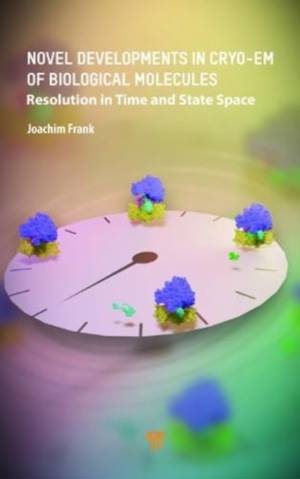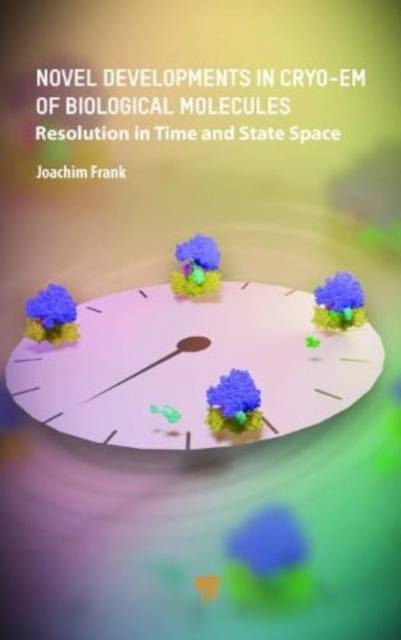
- Afhalen na 1 uur in een winkel met voorraad
- Gratis thuislevering in België vanaf € 30
- Ruim aanbod met 7 miljoen producten
- Afhalen na 1 uur in een winkel met voorraad
- Gratis thuislevering in België vanaf € 30
- Ruim aanbod met 7 miljoen producten
Novel Developments in Cryo‐em of Biological Molecules
Resolution in Time and State Space
Joachim FrankOmschrijving
Cryo-EM, as it is currently practiced in many laboratories, is limited to the visualization of molecules that are in thermal equilibrium at the time before freezing. A further limitation is that the existing software does not fully exploit the information that is contained in the images of large ensembles of molecules in thermal equilibrium. This book is a collection of recent articles by the author, reprinted with introductions, and they mainly describe two novel methods in cryo-EM, one computational and the other experimental that requires the use of a microfluidic device. Both methods have the capacity to shed light on the dynamic behavior of biomolecules. Combined, they greatly expand the range of applications of cryo-EM.
The book describes a successful approach in which, based on cryo-EM data, all states visited by the molecule in thermal equilibrium are mapped by manifold embedding--a method of geometric machine learning--and the energy landscape of the molecule is derived. It also discusses methods and biological results of time-resolved cryo-EM, following a reaction in a non-equilibrium system over a short period of time and resulting in the capture of short-lived states that have been inaccessible by standard methods of cryo-EM.
Specificaties
Betrokkenen
- Auteur(s):
- Uitgeverij:
Inhoud
- Aantal bladzijden:
- 532
- Taal:
- Engels
Eigenschappen
- Productcode (EAN):
- 9789814968768
- Verschijningsdatum:
- 6/10/2023
- Uitvoering:
- Hardcover
- Formaat:
- Genaaid
- Afmetingen:
- 152 mm x 229 mm
- Gewicht:
- 992 g

Alleen bij Standaard Boekhandel
Beoordelingen
We publiceren alleen reviews die voldoen aan de voorwaarden voor reviews. Bekijk onze voorwaarden voor reviews.











